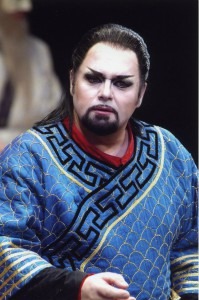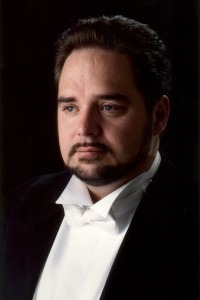
Marco Berti
Nevertheless, it was with Pinkerton in Puccini’s Madame Butterfly that Marco Berti made his debut in 1990, after winning the Concorso Internationale Giacomantonio. This year in June, he will act as Calàf in another masterwork by Puccini – Turandot, in the country where the opera was set. If you ask Berti whether there is any secret in singing operas by Puccini, he would tell you that ‘there is only one technique. It’s the Italian style, the LEGATO, in which one has to cover the sound and breathe for the support.’
 Not coming from a musical family, Berti has been following his heart to pursue his dream in life – being an opera singer. It is his burning passion that brings him to major opera houses around the world, from Covent Garden in London to the Metropolitan in New York, from Teatro alla Scala in Milan to the Arena of Verona, working with great conductors like Zubin Metha, Lorin Maazel, Riccardo Muti and Antonio Pappano etc. In September 2011, the magazine STYLE, the prestigious supplement of Corriere della Sera, named Marco Berti ‘among the four most famous tenors in the world’.
Not coming from a musical family, Berti has been following his heart to pursue his dream in life – being an opera singer. It is his burning passion that brings him to major opera houses around the world, from Covent Garden in London to the Metropolitan in New York, from Teatro alla Scala in Milan to the Arena of Verona, working with great conductors like Zubin Metha, Lorin Maazel, Riccardo Muti and Antonio Pappano etc. In September 2011, the magazine STYLE, the prestigious supplement of Corriere della Sera, named Marco Berti ‘among the four most famous tenors in the world’. Together with conductor Daniel Oren and director Riccardo Canessa, Marco Berti and a star list of singers, will gather at the Guangzhou Opera House in June 2013, to perform one of Puccini’s most exquisite masterpieces, Turandot, an opera which marked the Grand Opening of Guangzhou Opera House in 2010.
Turandot will be performed in Guangzhou on June 21 to 23.
Official Websites
Marco Berti




